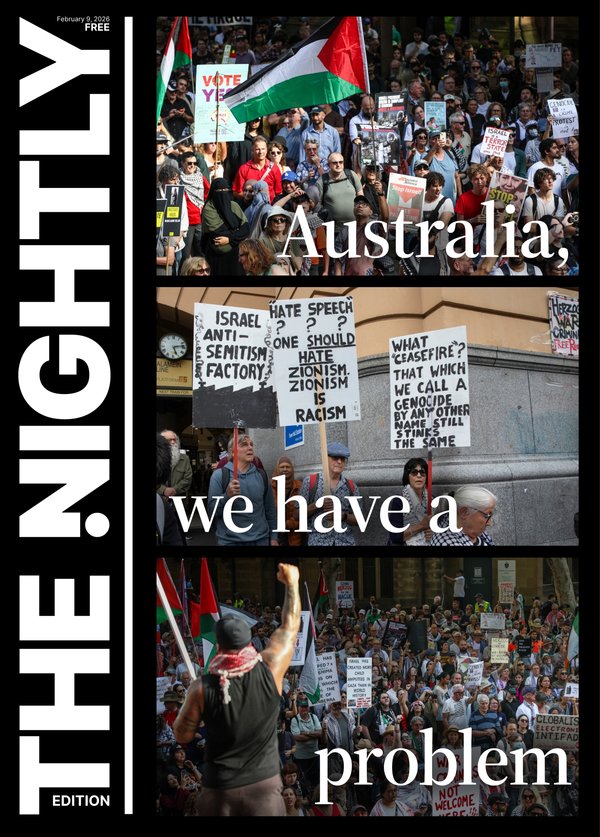Prime Minister Anthony Albanese to announce $8 billion bulk-bill election pitch
Anthony Albanese will unveil the policy today in a major election pitch that aims to lift bulk-billing rates to 90 per cent and save families $859 million a year on doctor’s fees.

Millions more visits to the doctor will be free under a Labor plan to pump an extra $8.5 billion into general practices and help families save up to $859 million a year.
Prime Minister Anthony Albanese will unveil the policy on Sunday in a major pre-election pitch that aims to lift bulk-billing rates to 90 per cent up from the current 77.7 per cent — the largest funding injection into Medicare for 40 years.
The move, budgeted over four years and then as ongoing spending, means an extra 18 million GP visits per year will be free.
Sign up to The Nightly's newsletters.
Get the first look at the digital newspaper, curated daily stories and breaking headlines delivered to your inbox.
By continuing you agree to our Terms and Privacy Policy.Under the plan, GPs will receive an extra incentive payment on top of existing Medicare rebates if they don’t charge patients any gap fee.
The Government used its 2023 Budget to treble the incentive payments for doctors who bulk-billed children, pensioners and concession card holders. This will extend the same incentives to every patient from November.
In addition, practices would get an extra payment worth 12.5 per cent of their Medicare billing if they bulk-billed every patient.
The incentive payments are worth $7.9b over the next four years, much of which was provided for in December’s mid-year budget update.
The combination is expected to make it more financially beneficial for 4800 GP practices — about 60 per cent of them — to bulk bill every patient instead of charging gap fees to some.
The plan also offers $617m over the next four years to train more doctors and nurses to fill an anticipated shortfall of some 5500 GPs over the next decade.
“I want every Australian to know they only need their Medicare card, not their credit card, to receive the health care they need,” Mr Albanese said.
“No Australian should have to check their bank balance to see if they can afford to see a doctor. That is not who we are. That is not the future we want for Australia.”
Labor is making health care a key plank of its pitch to voters in the looming election campaign.
It feeds into the cost-of-living pressures dominating people’s focus, with access to health care also featuring in the top issues voters are concerned about.
Health Minister Mark Butler said Labor’s approach to protecting Medicare was a stark contrast with the Coalition’s attitude towards it.

“Peter Dutton tried to end bulk billing with a GP tax, and then started a six-year freeze to Medicare rebates that froze GP incomes and stripped billions out of Medicare,” he said.
“No more wondering if you need to reach for your Medicare card or your credit card: Labor will put back into Medicare every dollar that Peter Dutton’s rebate-freeze took out.”
The Australian Medical Association estimated practices were $8.3b worse off than if the rebate level had never been frozen — leading to falling bulk-billing rates and rising fees as doctors kept their businesses above water.
It said Medicare rebates had never kept pace with the increased costs of running a practice, a situation exacerbated by indexation being delayed by seven months in 2013 under Labor, then frozen for several years under the Coalition, plus high inflation after the pandemic.
Bulk-billing rates for GP visits had been steadily dropping from a high of 89.7 per cent in early 2021, when all COVID-related appointments had to be bulk-billed.
But Health Department statistics showed they rose slightly to 77.7 per cent in the 12 months after the incentives for bulk-billing children and pensioners trebled in November 2023 and have stayed at that level since.
The Royal Australian College of General Practice labelled the trebled incentive in the 2023 Budget a game-changer.
It had made a pitch to the Government to extend the measure to people aged under 34, noting that young people were the most likely to delay visiting the doctor because of the cost, and for the standard consultation rebate to be lifted.
Its pre-Budget submission anticipated this would increase the bulk-billing rate to 85 per cent — with an extra 6.2 million appointments free to patients — and halve out-of-pocket costs for those who weren’t bulk-billed.
The average out-of-pocket cost across the country was about $47 for the 22 per cent of patients not bulk-billed, departmental data shows.
Bulk-billing in WA is the second lowest in the country — with 70.5 per cent of GP visits — but the out-of-pocket cost is slightly lower than average at $46.76.
Under the new incentive payment structure, the Medicare rebate for a standard GP consult of less than 20 minutes will stay at $42.85.
But a practice in Perth that bulk bills every patient will get paid $69.56 for the same appointment while one in a regional centre like Bunbury would receive $80.71.
The Medicare payment would nearly double in rural towns like Northam and York, while it would be $86.91 for a practice in a remote area such as Broome.

